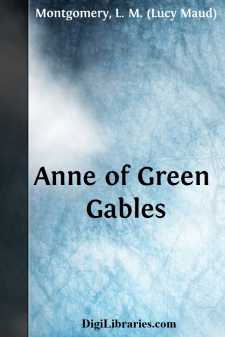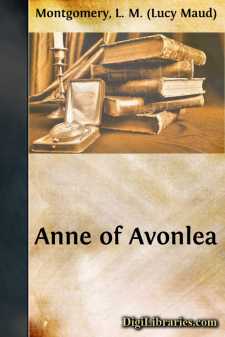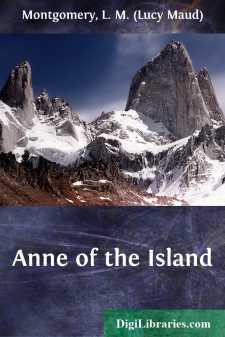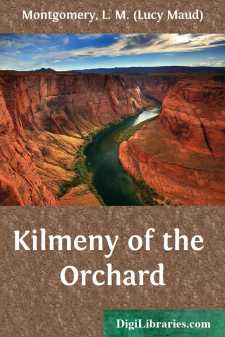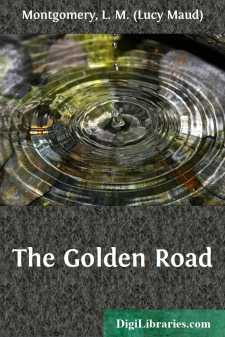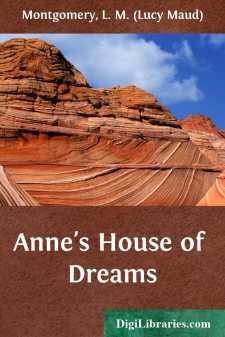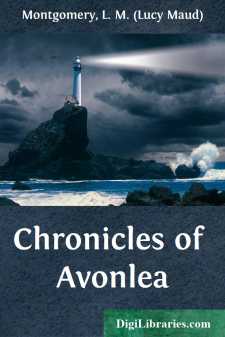Categories
- Antiques & Collectibles 13
- Architecture 36
- Art 48
- Bibles 22
- Biography & Autobiography 813
- Body, Mind & Spirit 142
- Business & Economics 28
- Children's Books 14
- Children's Fiction 11
- Computers 4
- Cooking 94
- Crafts & Hobbies 4
- Drama 346
- Education 46
- Family & Relationships 57
- Fiction 11828
- Games 19
- Gardening 17
- Health & Fitness 34
- History 1377
- House & Home 1
- Humor 147
- Juvenile Fiction 1873
- Juvenile Nonfiction 202
- Language Arts & Disciplines 88
- Law 16
- Literary Collections 686
- Literary Criticism 179
- Mathematics 13
- Medical 41
- Music 40
- Nature 179
- Non-Classifiable 1768
- Performing Arts 7
- Periodicals 1453
- Philosophy 64
- Photography 2
- Poetry 896
- Political Science 203
- Psychology 42
- Reference 154
- Religion 513
- Science 126
- Self-Help 84
- Social Science 81
- Sports & Recreation 34
- Study Aids 3
- Technology & Engineering 59
- Transportation 23
- Travel 463
- True Crime 29
The Story Girl
Description:
Excerpt
CHAPTER I. THE HOME OF OUR FATHERS
"I do like a road, because you can be always wondering what is at the end of it."
The Story Girl said that once upon a time. Felix and I, on the May morning when we left Toronto for Prince Edward Island, had not then heard her say it, and, indeed, were but barely aware of the existence of such a person as the Story Girl. We did not know her at all under that name. We knew only that a cousin, Sara Stanley, whose mother, our Aunt Felicity, was dead, was living down on the Island with Uncle Roger and Aunt Olivia King, on a farm adjoining the old King homestead in Carlisle. We supposed we should get acquainted with her when we reached there, and we had an idea, from Aunt Olivia's letters to father, that she would be quite a jolly creature. Further than that we did not think about her. We were more interested in Felicity and Cecily and Dan, who lived on the homestead and would therefore be our roofmates for a season.
But the spirit of the Story Girl's yet unuttered remark was thrilling in our hearts that morning, as the train pulled out of Toronto. We were faring forth on a long road; and, though we had some idea what would be at the end of it, there was enough glamour of the unknown about it to lend a wonderful charm to our speculations concerning it.
We were delighted at the thought of seeing father's old home, and living among the haunts of his boyhood. He had talked so much to us about it, and described its scenes so often and so minutely, that he had inspired us with some of his own deep-seated affection for it—an affection that had never waned in all his years of exile. We had a vague feeling that we, somehow, belonged there, in that cradle of our family, though we had never seen it. We had always looked forward eagerly to the promised day when father would take us "down home," to the old house with the spruces behind it and the famous "King orchard" before it—when we might ramble in "Uncle Stephen's Walk," drink from the deep well with the Chinese roof over it, stand on "the Pulpit Stone," and eat apples from our "birthday trees."
The time had come sooner than we had dared to hope; but father could not take us after all. His firm asked him to go to Rio de Janeiro that spring to take charge of their new branch there. It was too good a chance to lose, for father was a poor man and it meant promotion and increase of salary; but it also meant the temporary breaking up of our home. Our mother had died before either of us was old enough to remember her; father could not take us to Rio de Janeiro. In the end he decided to send us to Uncle Alec and Aunt Janet down on the homestead; and our housekeeper, who belonged to the Island and was now returning to it, took charge of us on the journey. I fear she had an anxious trip of it, poor woman! She was constantly in a quite justifiable terror lest we should be lost or killed; she must have felt great relief when she reached Charlottetown and handed us over to the keeping of Uncle Alec. Indeed, she said as much....



